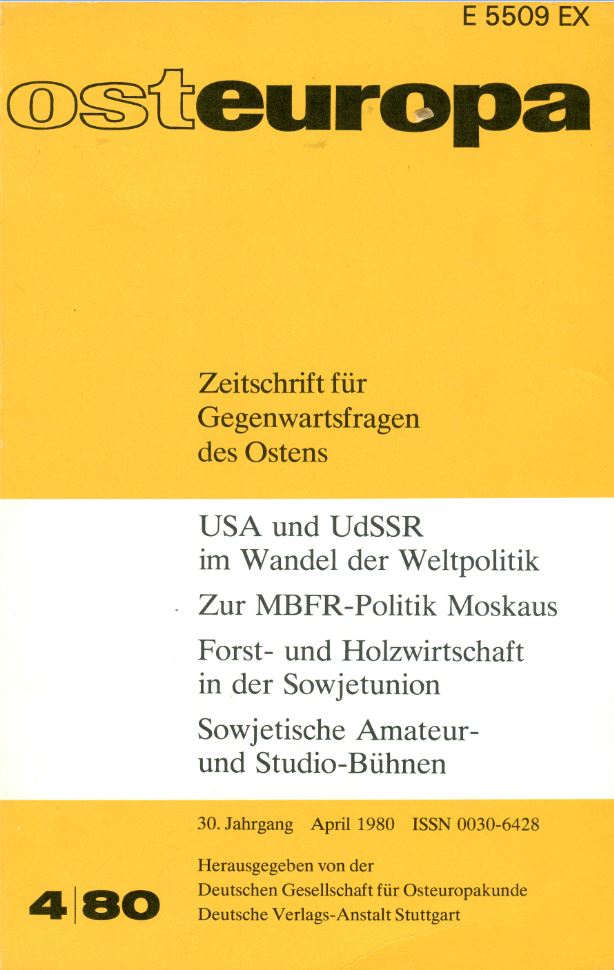Militärische Planung und MBFR-Politik der Sowjetunion. Die Militarstrategien von NATO und Warschauer Pakt und ihre Auswirkungen auf die Wiener Verhandlungen
Military Planning and MBFR Policy of the Soviet Union The military strategies of NATO and the Warsaw Pact and their impact on the Vienna negotiations
Author(s): Stephan TiedtkeSubject(s): Military policy, Cold-War History, Peace and Conflict Studies
Published by: Deutsche Gesellschaft für Osteuropakunde e.V.
Keywords: arms-control; detente;
Summary/Abstract: In the Vienna negotiations on troop and armament reductions in Europe (MBFR), those parties involved proceed from the premise that an arms control agreement must in no way reduce the security of their alliance systems. Both sides interpret security largely in conventional military categories, as the agreement on the subject of the negotiations and the proposals made so far clearly show. The goal of the negotiations is - corresponding to the Western term of "undiminished security" - constant security. (This article is the abridged version of the study "Arms Control from a Soviet Perspective. The Framework of Soviet MBFR Policy", which will be published by Campus Verlag, Frankfurt a. M. 1980.)
Journal: Osteuropa
- Issue Year: 30/1980
- Issue No: 04
- Page Range: 301-319
- Page Count: 19
- Language: German

